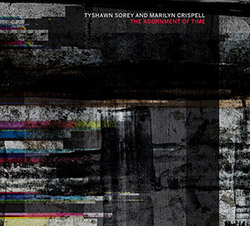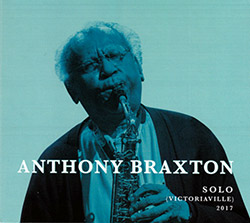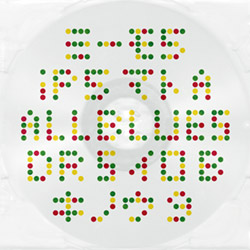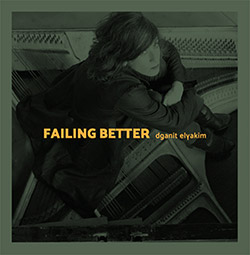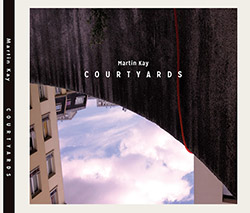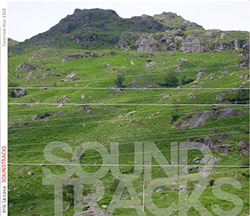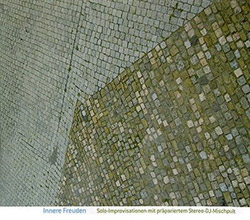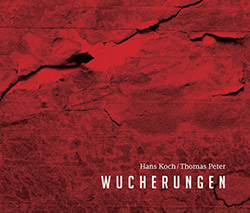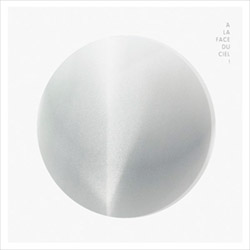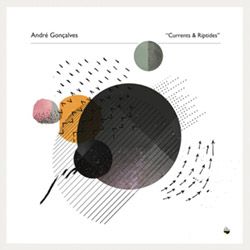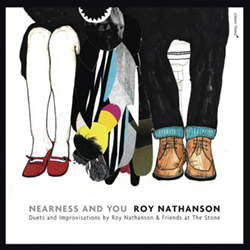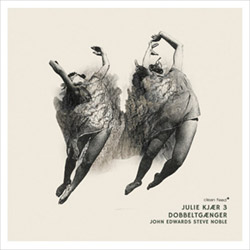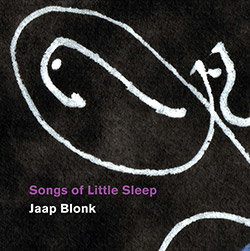![Parker, Evan: The Snake Decides [REPRESS] (psi) Parker, Evan: The Snake Decides [REPRESS] (psi)](https://www.teuthida.com/productImages/misc4/02411.jpg)
Re-issuing UK improvising saxophonist Evan Parker's stunning 2003 solo release on soprano sax, recorded in 1986 in St. Paul's Church, Oxford by the late Michael Gerzon--"a giant in the field of audio"--using the natural resonance of the space to augment Parker's incredible technique.
Out of Stock
Quantity in Basket: None
Log In to use our Wish List
Shipping Weight: 4.00 units
Sample The Album:
Evan Parker-soprano sax
Click an artist name above to see in-stock items for that artist.
UPC: 5030243030620
Label: psi
Catalog ID: 03.06
Squidco Product Code: 2411
Format: CD
Condition: New
Released: 2003
Country: Great Britain
Packaging: Jewel Tray
Recorded at St. Paul's Church, Oxford, England in 1986, by Michael Gerzon.
""We play to the informed listener. We don't play to the person who's tumbled in for the first time. We're not looking to make it easy." Evan Parker, 2003.
The music on Parker's Psi label, particularly his own, remains faithful to the spirit of the quote above. To get the most out of Parker, one should be prepared to invest some time. Such investment is repaid many times over. More than most, Parker's musical universe can seem self-contained, to be judged only by its own criteria. However, familiarity with (some of) his other recordings can greatly enhance one's appreciation. Thankfully, Parker continues to make good on his promise to re-release all of his Incus recordings on Psi. They are vital recordings in their own right, and their absence from the catalogue has hampered a full appreciation of Parker's work.
Originally recorded and released in 1986, The Snake Decides is the last of Parker's solo soprano sax recordings from Incus to be released on CD. It was recorded direct to a two-track master and documents four improvisations recorded in real time with no trickery. (It is always worth saying that, as new listeners often don't believe it.)
The title track is the longest, at almost twenty minutes. Although its title refers to a woodcut of the same name by George Murphy, it provides a ready-made excuse to focus on the serpentine qualities of Parker's soprano playing. His relentlessly energetic flurries of notes defy logic or reason, seeming to spiral and to tie themselves in knots and coils. If you are seeking to invest some time in Parker's music, I humbly suggest playing this album back-to-back with Lines Burnt in Light , Parker's solo soprano sax album from 2001. The contrasts are fascinating and reveal the ongoing development of the ever-changing Parker. It is a delight to welcome The Snake Decides back. Highly recommended."-John Eyles, All About Jazz
Six years after Six of One, Evan Parker proposed another solo album. The Snake Decides features the man, his soprano saxophone, and a gifted sound engineer in Michael Gerzon, to whom Parker pays tribute in the liner notes to the CD reissue (a reissue that sticks to the original album, no bonus material on this one). Six of One is hard to beat, especially since at the time (1980) it represented a thunderous introduction to Parker's solo playing. But The Snake Decides manages to raise the ante, if only slightly. Parker's circular breathing has grown more flexible and frantic. One pictures a mad snake charmer, playing multiple melodies at once to make the snakes stretch into different directions and move in interlocking patterns. In "Buriden's Ass" and "Haine's Last Tape," the number of notes per minute hits a peak. But Parker's music has never been about keeping score. The flurry is necessary to mesmerize the listener, to hypnotize him, to make everything else within earshot fade away. All that remains is this kaleidoscope of multiphonics. The title track, 20-minutes long, can seem like something of an ordeal, but the absence of a pause or break in the flow of notes obliterates time. But the best, most impressive pieces are the shorter ones; they are brighter, friskier. Recommended."-Francois Couture
Get additional information at All About Jazz
Artist Biographies
• Show Bio for Evan Parker "Evan Parker was born in Bristol in 1944 and began to play the saxophone at the age of 14. Initially he played alto and was an admirer of Paul Desmond; by 1960 he had switched to tenor and soprano, following the example of John Coltrane, a major influence who, he would later say, determined "my choice of everything". In 1962 he went to Birmingham University to study botany but a trip to New York, where he heard the Cecil Taylor trio (with Jimmy Lyons and Sunny Murray), prompted a change of mind. What he heard was "music of a strength and intensity to mark me for life ... l came back with my academic ambitions in tatters and a desperate dream of a life playing that kind of music - 'free jazz' they called it then." Parker stayed in Birmingham for a time, often playing with pianist Howard Riley. In 1966 he moved to London, became a frequent visitor to the Little Theatre Club, centre of the city's emerging free jazz scene, and was soon invited by drummer John Stevens to join the innovative Spontaneous Music Ensemble which was experimenting with new kinds of group improvisation. Parker's first issued recording was SME's 1968 Karyobin, with a line-up of Parker, Stevens, Derek Bailey, Dave Holland and Kenny Wheeler. Parker remained in SME through various fluctuating line-ups - at one point it comprised a duo of Stevens and himself - but the late 1960s also saw him involved in a number of other fruitful associations. He began a long-standing partnership with guitarist Bailey, with whom he formed the Music Improvisation Company and, in 1970, co-founded Incus Records. (Tony Oxley, in whose sextet Parker was then playing, was a third co-founder; Parker left Incus in the mid-1980s.) Another important connection was with the bassist Peter Kowald who introduced Parker to the German free jazz scene. This led to him playing on Peter Brötzmann's 1968 Machine Gun, Manfred Schoof's 1969 European Echoes and, in 1970, joining pianist Alex von Schlippenbach and percussionist Paul Lovens in the former's trio, of which he is still a member: their recordings include Pakistani Pomade, Three Nails Left, Detto Fra Di Noi, Elf Bagatellen and Physics. Parker pursued other European links, too, playing in the Pierre Favre Quartet (with Kowald and Swiss pianist Irene Schweizer) and in the Dutch Instant Composers Pool of Misha Mengelberg and Han Bennink. The different approaches to free jazz he encountered proved both a challenging and a rewarding experience. He later recalled that the German musicians favoured a "robust, energy-based thing, not to do with delicacy or detailed listening but to do with a kind of spirit-raising, a shamanistic intensity. And l had to find a way of surviving in the heat of that atmosphere ... But after a while those contexts became more interchangeable and more people were involved in the interactions, so all kinds of hybrid musics came out, all kinds of combinations of styles." A vital catalyst for these interactions were the large ensembles in which Parker participated in the 1970s: Schlippenbach's Globe Unity Orchestra, Chris McGregor's Brotherhood of Breath, Barry Guy's London Jazz Composers Orchestra (LJCO) and occasional big bands led by Kenny Wheeler. In the late 70s Parker also worked for a time in Wheeler's small group, recording Around Six and, in 1980, he formed his own trio with Guy and LJCO percussionist Paul Lytton (with whom he had already been working in a duo for nearly a decade). This group, together with the Schlippenbach trio, remains one of Parker's top musical priorities: their recordings include Tracks, Atlanta, Imaginary Values, Breaths and Heartbeats, The Redwood Sessions and At the Vortex. In 1980, Parker directed an Improvisers Symposium in Pisa and, in 1981, he organised a special project at London's Actual Festival. By the end of the 1980s he had played in most European countries and had made various tours to the USA, Canada, Australia, New Zealand and Japan. ln 1990, following the death of Chris McGregor, he was instrumental in organising various tributes to the pianist and his fellow Blue Notes; these included two discs by the Dedication Orchestra, Spirits Rejoice and lxesa. Though he has worked extensively in both large and small ensembles, Parker is perhaps best known for his solo soprano saxophone music, a singular body of work that in recent years has centred around his continuing exploration of techniques such as circular breathing, split tonguing, overblowing, multiphonics and cross-pattern fingering. These are technical devices, yet Parker's use of them is, he says, less analytical than intuitive; he has likened performing his solo work to entering a kind of trance-state. The resulting music is certainly hypnotic, an uninterrupted flow of snaky, densely-textured sound that Parker has described as "the illusion of polyphony". Many listeners have indeed found it hard to credit that one man can create such intricate, complex music in real time. Parker's first solo recordings, made in 1974, were reissued on the Saxophone Solos CD in 1995; more recent examples are Conic Sections and Process and Reality, on the latter of which he does, for the first time, experiment with multi-tracking. Heard alone on stage, few would disagree with writer Steve Lake that "There is, still, nothing else in music - jazz or otherwise - that remotely resembles an Evan Parker solo concert." While free improvisation has been Parker's main area of activity over the last three decades, he has also found time for other musical pursuits: he has played in 'popular' contexts with Annette Peacock, Scott Walker and the Charlie Watts big band; he has performed notated pieces by Gavin Bryars, Michael Nyman and Frederic Rzewski; he has written knowledgeably about various ethnic musics in Resonance magazine. A relatively new field of interest for Parker is improvising with live electronics, a dialogue he first documented on the 1990 Hall of Mirrors CD with Walter Prati. Later experiments with electronics in the context of larger ensembles have included the Synergetics - Phonomanie III project at Ullrichsberg in 1993 and concerts by the new EP2 (Evan Parker Electronic Project) in Berlin, Nancy and at the 1995 Stockholm Electronic Music Festival where Parker's regular trio improvised with real-time electronics processed by Prati, Marco Vecchi and Phillip Wachsmann. "Each of the acoustic instrumentalists has an electronic 'shadow' who tracks him and feeds a modified version of his output back to the real-time flow of the music." The late 80s and 90s brought Parker the chance to play with some of his early heroes. He worked with Cecil Taylor in small and large groups, played with Coltrane percussionist Rashied Ali, recorded with Paul Bley: he also played a solo set as support to Ornette Coleman when Skies of America received its UK premiere in 1988. The same period found Parker renewing his acquaintance with American colleagues such as Anthony Braxton, Steve Lacy and George Lewis, with all of whom he had played in the 1970s (often in the context of London's Company festivals). His 1993 duo concert with Braxton moved John Fordham in The Guardian to raptures over "saxophone improvisation of an intensity, virtuosity, drama and balance to tax the memory for comparison". Parker's 50th birthday in 1994 brought celebratory concerts in several cities, including London, New York and Chicago. The London performance, featuring the Parker and Schlippenbach trios, was issued on a highly-acclaimed two-CD set, while participants at the American concerts included various old friends as well as more recent collaborators in Borah Bergman and Joe Lovano. The NYC radio station WKCR marked the occasion by playing five days of Parker recordings. 1994 also saw the publication of the Evan Parker Discography, compiled by ltalian writer Francesco Martinelli, plus chapters on Parker in books on contemporary musics by John Corbett and Graham Lock. Parker's future plans involve exploring further possibilities in electronics and the development of his solo music. They also depend to a large degree on continuity of the trios, of the large ensembles, of his more occasional yet still long-standing associations with that pool of musicians to whose work he remains attracted. This attraction, he explained to Coda's Laurence Svirchev, is attributable to "the personal quality of an individual voice". The players to whom he is drawn "have a language which is coherent, that is, you know who the participants are. At the same time, their language is flexible enough that they can make sense of playing with each other ... l like people who can do that, who have an intensity of purpose." " ^ Hide Bio for Evan Parker
5/15/2024
Have a better biography or biography source? Please Contact Us so that we can update this biography.
Track Listing:
1. The Snake Decides 19:56
2. Leipzig Folly 11:42
3. Buriden's Ass 6:29
4. Haine's Last Tape 6:01
Improvised Music
Parker, Evan
May 2006
Solo Artist Recordings
Recordings by or featuring Reed & Wind Players
Free Improvisation
London & UK Improv & Related Scenes
EMANEM & psi
Staff Picks & Recommended Items
Search for other titles on the label:
psi.


![Parker, Evan: The Snake Decides [REPRESS] (psi) Parker, Evan: The Snake Decides [REPRESS] (psi)](https://www.teuthida.com/productImages/full/02411.Full.jpg)

